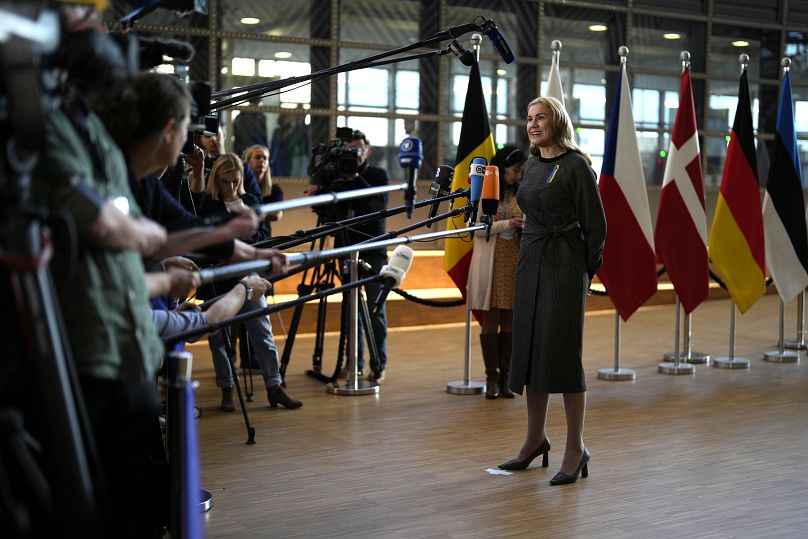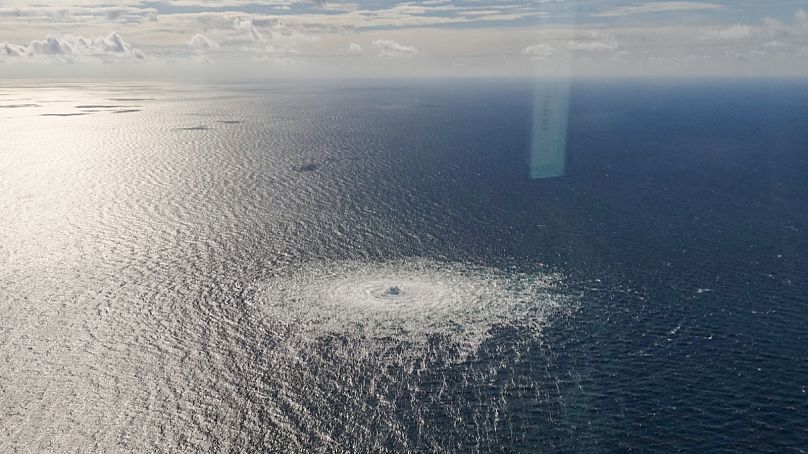"The complete shutdown of Russian pipeline gas supplies to the European Union cannot be excluded ahead of the 2022/23 heating season."
Heating turned down and boilers adjusted -- these are the measures Europeans need to take to prepare for Russian gas supplies being completely cut, according to a report.
 ADVERTISEMENT
ADVERTISEMENT
 ADVERTISEMENT
ADVERTISEMENT
The EU faces "unprecedented risks" of gas shortages this winter after Russia axed most pipeline shipments amid its war in Ukraine, the International Energy Agency said.
The Paris-based group said homeowners need to turn down thermostats in emergency energy-saving measures to help reduce Europe's gas usage by 13% in preparation for a total gas cut-off.
"The complete shutdown of Russian pipeline gas supplies to the European Union cannot be excluded ahead of the 2022/23 heating season – when the European gas market is at its most vulnerable," the IEA wrote in its quarterly gas report on Monday.
The IEA said the EU must focus on getting underground gas reserve levels to 90% of capacity in case of a complete Russian supply shut-off. The EU's storage is currently around 88% of capacity -- above its goal of 80%.
It also warned Europe it must ensure gas reserves do not drop below 33% this winter so it has enough energy if there is a sudden spell of cold weather.
Household energy-saving measures -- including turning down thermostats by 1°C and dropping boiler temperatures -- would help boost Europe's gas storage levels, the IEA said.
These measures should be coordinated with minimising gas burning in the EU's power sector and lowering gas use in buildings, the group said.
"Our analysis indicates that maintaining adequate storage levels until the end of the heating season -- at 33% of their working storage capacity as a minimum -- will be crucial for a safe and secure winter," the IEA wrote.
"Storage levels below this threshold might not be sufficient to tackle a cold spell occurring at the end of the heating season, similar to the one Europe faced in March 2018."
Russian gas supply cuts
Just a trickle of Russian gas is still arriving in pipelines through Ukraine to Slovakia and across the Black Sea through Turkey to Bulgaria. Two other routes, under the Baltic Sea to Germany and through Belarus and Poland, have shut down.
European leaders say the cutback in Russian gas is blackmail aimed at pressuring governments over their support for Ukraine and sanctions against Moscow.
The Nord Stream 1 pipeline, which carries gas from Russia to Europe, was shut down indefinitely before a number of leaks were found in it in the Baltic Sea.
The undersea pipeline was damaged in underwater explosions that European governments say are sabotage. Russia has denied any responsibility.
Leaks were also found on the Nord Stream 2 pipeline, which was due to come on stream this year but never did after Germany refused to certify it.
Moscow has hinted at threats to cut off what is left of its natural gas supplies to Europe.
Last Tuesday, Gazprom -- Russia's state-owned energy firm -- said it could impose sanctions on Ukraine's state gas company over a legal dispute, which would likely result in supplies being shut off.
European governments and businesses have made up much of the Russian shortfall by purchasing expensive supplies of liquefied natural gas, which comes by ship from countries such as the US and Qatar.
They have also obtained increased pipeline supply from Norway and Azerbaijan.
On Saturday, Bulgaria opened a natural gas link with Greece that was hailed by European Commission President Ursula von der Leyen.
“This pipeline changes the energy security situation for Europe. This project means freedom,“ von der Leyen said.
The European Commission committed nearly €250 million to finance the project, she added.
Europe's energy-saving winter
Last week, EU energy ministers approved a package of emergency measures to curb soaring electricity bills and coordinate member states' responses to the energy crisis.
The package, negotiated in less than a month, includes mandatory power savings, a cap on excess market revenues and a levy to capture surplus corporate profits.
The agreement came as inflation in the eurozone hit double digits – 10% – for the first time in the history of the single currency, primarily driven by skyrocketing energy bills.
The three measures are all time-limited and cover:
- An EU-wide plan to introduce power savings: a mandatory 5% target during peak hours, when gas plays a bigger role in price-setting, and a voluntary 10% reduction in overall electricity demand.
- A cap on the excess revenues made by power plants that do not use gas to produce electricity, such as solar, wind, nuclear, hydropower and lignite. The cap will be uniform and set at €180 per megawatt-hour. All revenues that exceed the barrier will be collected by governments.
- A solidarity mechanism to partially capture the surplus profits made by fossil fuel companies (crude oil, gas, coal and refinery). Authorities will be able to impose a 33% levy on the profits made by these companies in the 2022 fiscal year – but only if the profits represent a 20% increase compared to the average since 2018.
EU leaders have promised to introduce further energy-saving measures to deal with lower gas supplies.
"Today the EU managed to deliver," said Jozef Síkela, the Czech Republic's minister for industry and trade, who holds the EU Council's rotating presidency.
"We completed another part of the puzzle but definitely not the last one," Síkela added. "This is an immediate patch."












